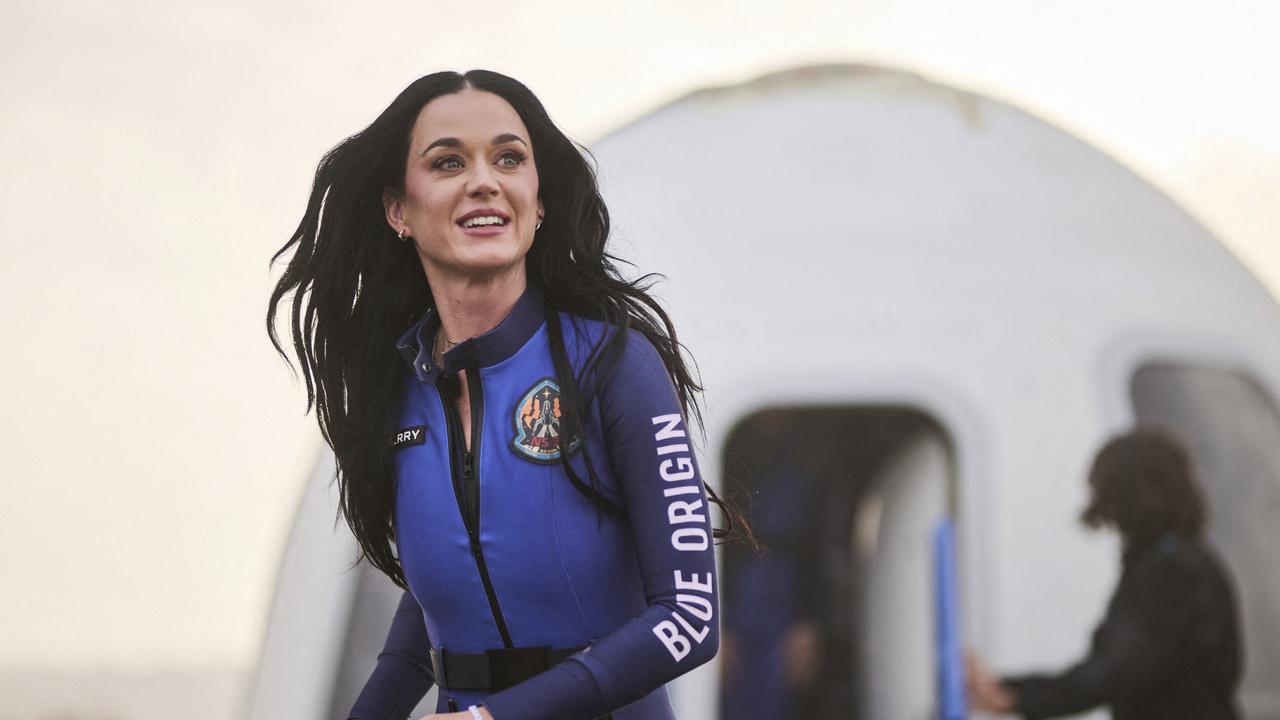‘Didn’t want to be a tosser’: Chef Shannon Bennett on being a single dad and why he quit Vic
Chef Shannon Bennett reveals what life is like as a father of six after his toxic split with actor Madeleine West and why he thinks George Calombaris was treated worse than a sex offender.
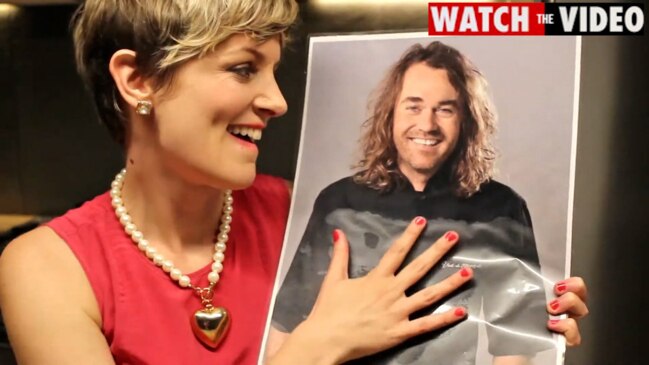
VWeekend
Don't miss out on the headlines from VWeekend. Followed categories will be added to My News.
Shannon Bennett sits relaxed and content in the treehouse library room at his multimillion-dollar Byron Bay property.
Two vintage leather couches complement a range of books perched on shelves in all corners of the modern wooden space – from French Interior Design to a travel guide of India to Vanity Fair’s 100 Years and an encyclopaedia of Dickens’ novels. Even a Sherrin football sits on a ledge along with framed memories of his children, a rarely turned-on television and a decadent whisky trolley with some acoustic tunes easing through the in-built speakers.
It’s a dream take on an office and a fitting location to open up for the first time about why he switched from the hustle of Melbourne to more serene surrounds.
Straight shooter Bennett, who has made celebrated appearances on MasterChef and created the Vue de monde restaurant empire at the Rialto, delivers a frank assessment of life then and now.
He vividly recalls the moment five years ago, while lending a chef’s hand to mate Andrew McConnell, when it dawned on him just how far he’d drifted from the kitchen.
He knew in his heart what he didn’t want, and where he needed to be.
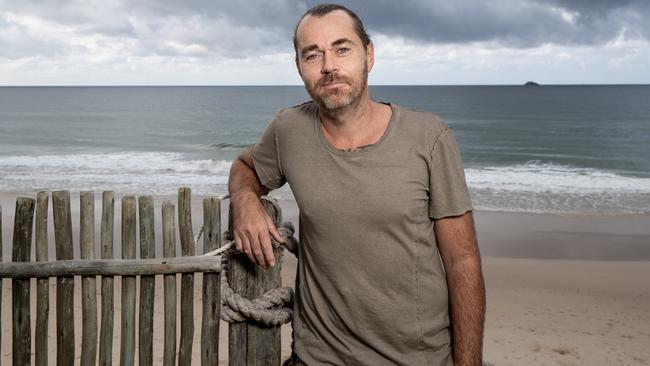
“A couple of things forced my hand,’’ Bennett said.
“I was getting up and I wasn’t motivated like I used to be. I was being pulled in different directions. I think it started when I was full-time ambassador for (German appliance manufacturer) Miele. I had just signed a new, very lucrative contract as their ambassador worldwide.
“It might have been my 26th trip overseas in a year, it was just ridiculous. I think I was in South America and I was just like ‘I don’t know if I can keep doing this’.
“The expectations were just huge and for the first time in my life I felt a sense of anxiety about how much I had going on.
“Then I came back from overseas and I recall the food and wine festival joined up with the top 50 restaurants of the world awards and all the local chefs jumped in and helped where we could and did dinners and we were really proud to have the top 50 come to the city.
“I just remember one night at Donovans (in St Kilda) where we were in the kitchen helping out, and Andrew McConnell was leading the dinner, he’s a good mate of mine.
“We’re all just working away and basically donating our time and volunteering. This guy just came in … as if he was expecting this big accolade when he walked into the kitchen. It was like who is this guy? He made a complete fool of himself. It baffled me that this guy actually was thinking that everyone would know him. Chefs have become such wankers, like seriously such tossers. I just can’t do this anymore. I just don’t want to be a tosser, I just don’t want that.”
So with that vow, Bennett packed up and moved. He realises now that striving for awards and recognition was the wrong direction for him.
“Just good food, good produce and customers being really happy. I missed that part of the scene,’’ he said.
It was a complicated time for Bennett who had gained a reputation as one of our best chefs and was arguably at the top of his game.
The astute businessman, who has largely kept his family out of the spotlight, was also dealing with a separation from his partner of 13 years, actor Madeleine West. They have six children, Phoenix, Hendrix, Xascha, Xanthe and twins Xahlia and Margaux who range in age from eight to 16.
More issues to contend with were the persistent headlines of unpaid contracts, disgruntled employees and wage underpayments.
“When everything collided with what I went through with the separation I was better prepared than anyone for that, but I just didn’t know it,’’ he said.
“I knew it was time for me to step away from hospitality. I was just not getting the same out of the industry that I was getting five years earlier.
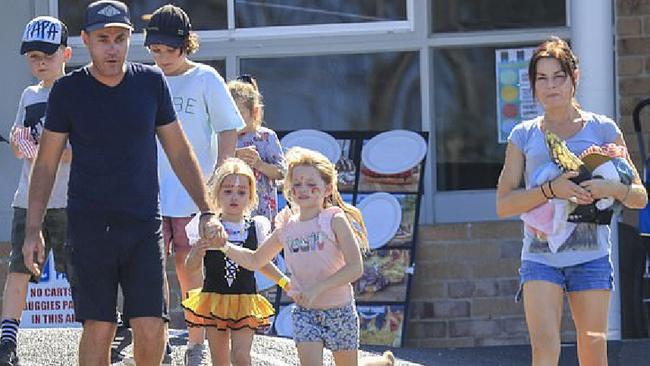
“A huge frustration was we weren’t getting the support from government. A lot of chefs competing in a much smaller market, a much smaller community of skilled labour team members, and I felt I never entered the industry to make enemies. That wasn’t me and I could see that was starting to collide. I think one positive out of many negatives that the industry can be thankful for during Covid is it has reset everyone. I think there’s a good community in Melbourne and I still feel it was the right time to do what I did and I feel like I’ve taken probably 10 years off someone and added it to my life.
“The reputation that I’d built up over the years, it started to implode and I suppose in many ways I looked at that a bit naively. I felt always the truth will come out at the end so I didn’t really respond to anything. I’m still a big believer in that. I did lose faith in journalism in that period.
“I basically learnt to trust no one. For me, because I was so busy up here and because I had such a great community up here, it was a lot easier for me to deal with it all. If you have to get out there and tell the truth something’s not right. So you just keep doing what you’re doing, head down, bum up.”
Bennett set about starting his new life without any added pressures. The two-acre property he acquired in November 2017, which backs on to the beach, has been built into an environmentally friendly oasis and houses a raft of animals too; Zhazhou the macaw, Boo the pomeranian, MJ the Aussie shepherd, Kiah the Swiss shepherd, three goats, six ducks, eight chickens and a rooster, Simon the python, Marshmallow the water dragon and two turtles that live in the pool.
He has always been conscious of keeping the children out of the public eye, with neither he nor West, who lives close to Byron Bay, posting pictures of them on social media.
“The kids live with me full time and they visit their mother every fortnight for a few days,’’ he said. “A mate of mine sent me a T-shirt and it read ‘f--- the noise’. I had a really good laugh at it. I’ve got really good people around me and if I’m down a bit they basically say to me, ‘what’s going on?’ and you just keep forging ahead.
“At the end of the day it’s about the children. I feel on this that my children’s lives are private and I’m the protector of that. I’ll do anything I can to ensure they get to grow as normally as possible with no distractions. I think I’m doing a good job of that, it’s good she’s doing that too.
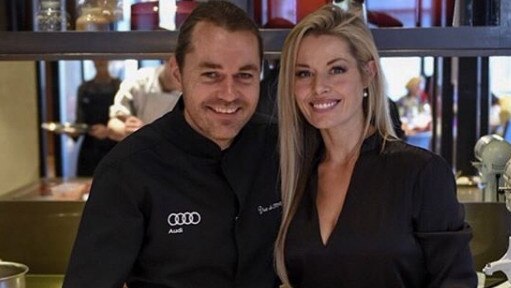
“We are so busy with just the normal things of kids trying a new sport, trying to constantly make new friends, trying to build up their experience in different areas like music and sports and getting them out into nature and finding out where they belong in the world.
“They’re just normal kids up here. They ride bikes, there’s the beach, nature, they love animals. When you’re a child in Byron Bay it reminds me a lot of my childhood. I just find there’s less social anxiety up here about kids riding bikes on the streets or playing cricket on the road. It’s a lot more chilled and I hope that stays in Byron because there’s been an influx of people from Melbourne and Sydney and I’ve heard the horns of cars toot for the first time ever over the last six months which sends chills down my spine. And people speeding, I’ve never seen that. Where are you going, what are you late for?
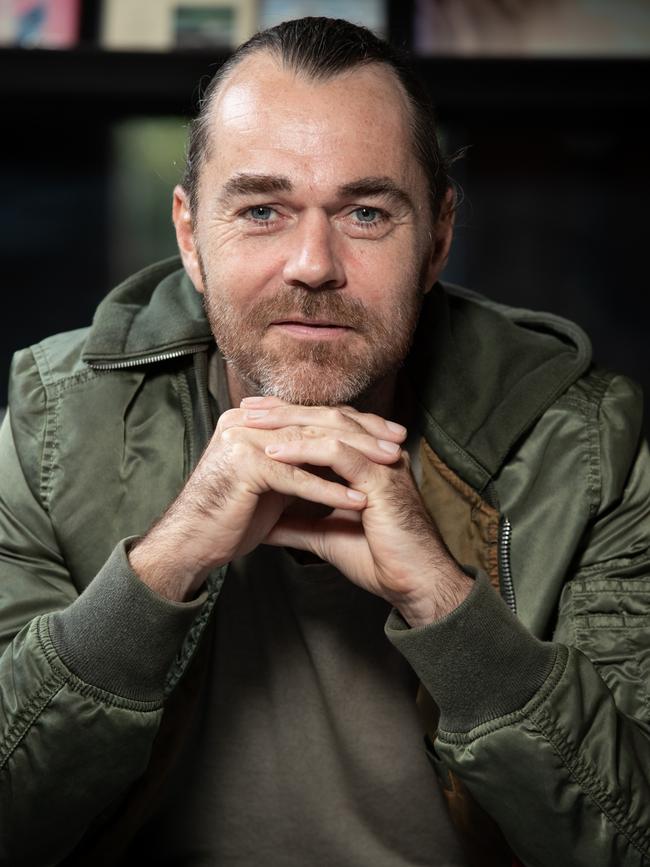
“My kids have got this great private life up here which is really good. It’s been really good to reset that for them.”
Bennett is loving the focus on fitness and wellbeing, describing it as the best of both worlds. He’s become good friends with former AFL player Brad Sewell, tennis legend Pat Rafter, and relishes the sense of community in the area.
It reminds him of his fun childhood growing up carefree in Westmeadows, down the road from Broadmeadows. It’s where he developed his love of food.
“It was full of different demographics of people. I always remember our neighbours across the road were Christian Lebanese who were refugees, working hard,’’ he said.
“Four families in one house and they’d send food over to us. Next door were Maltese, first generation to come out here and then on the other side were Italians, second generation. So that’s where my love of food came from.
“My mum was Irish and she loved cooking. I went to Westmeadows Primary School and then it was a big transition to Essendon Grammar which led me to do home economics, which led me to get a job at McDonald’s of all places, which taught me work ethic.
“Then I wanted to travel. That was the biggest thing I didn’t realise when I fell in love with cooking – it’s basically a passport to travel. For any young chef you have to spend at least two years in a foreign country where you’re uncomfortable and you’re exploring, you’re seeing things for the first time.
“I used to write to Curtis Stone and he was doing his apprenticeship at the Southern Cross Hotel and I actually want all the letters back because he said he kept them all. I used to write to him once every three or four months just about how tough it was. I actually said at the time, ‘don’t come here (the UK) because it’s brutal’. Working for Marco Pierre White, there was a lot more reward for the work you put in because people knew Marco so it was like a status symbol working for his kitchen and it all came together after that.”
Bennett then went to France, Stone went to the UK, and he says he would not change a thing in those seven-and-a-half years working abroad.
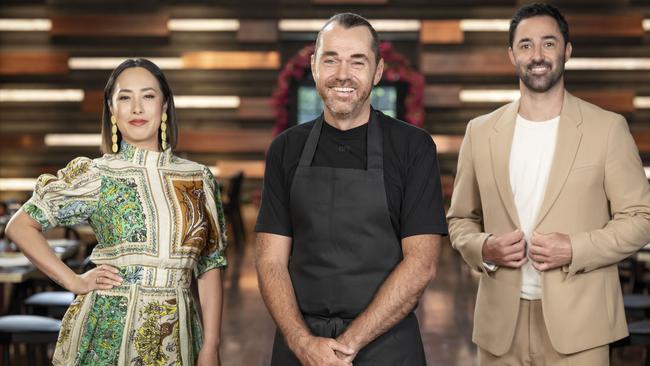
“It was the hardest, mentally and physically, but the knowledge was incredible,’’ he said. “Mopping floors, all the way to prepping mushrooms, scrubbing truffles, dressing royal pigeons that were £25 each for wholesale. I was just learning every day and I didn’t stop learning. I always remember the advice I was given, just be the dumbest in the room. When you find yourself being the smartest in the room, it’s time to move to the next room. I’ve kept that advice to myself pretty much constantly.
“I still love cooking and I cook probably five to six times a week. It’s a different type of cooking but still essentially the same in terms of great ingredients. I try to make it as simple as possible as my life is not as intense as it used to be, but as a chef you’ve got to make it nice.”
During Covid it wasn’t all smooth sailing with Bennett mourning the loss of his mum Bridie to a rare brain disease aged 72. She died alone, as his dad Benny was unable to visit, and the family was unable to hold a proper funeral. Bennett’s dad now comes to visit often and his brother Liam is also one of his biggest supporters.
After leaving the bright lights behind Bennett says he realised he had a lot of ‘false friends’. His true mates include marketing and PR guru David Abela, who has become a sounding board, as well as property developer Morry Schwartz, Virgin billionaire Richard Branson, and his trusted proteges at Vue de monde, executive chef Hugh Allen and Josh Lewis. He’s now a mentor at Lewis and partner Astrid McCormack’s restaurants Fleet and La Casita in Brunswick Heads.
After some shrewd investments and sales, Bennett is able to live the lifestyle he wants, which has also come with learning to say no.
He has an idea for a boutique hotel project, but he’s in no rush. He was bought out of the Vue Group for a handsome sum, sold his Toorak mansion, his share in Byron’s Beach Hotel, a music venture and recently Burnham Beeches in the Dandenong Ranges which he intended to redevelop but couldn’t find the time to travel to Victoria to do so.
He appears again on MasterChef after answering an SOS to judges earlier this year when Covid set in. He has a soft spot for the show and he hopes to keep lending his experience to others. He is also fiercely loyal to George Calombaris who went through a wage underpayment scandal.
“I just feel that George was hung out to dry,’’ Bennett said.
“And I’ve never seen someone treated so badly. I mean sex offenders have been treated better.
“I still find it to this day astonishing how we turned on George. For young people, he stood up and took accountability for the mistake.
“He said, ‘look it was my mistake’. We all know George is a great chef but I don’t think he’s an accountant or an HR director but we never got answers to that.”
Bennett is also passionate about the industry as a whole, and is encouraging our leaders to speak up. He would like to see penalty rates scrapped.
“From a political perspective, I’m not left or right wing, I think we’ve had three great PMs in my generation, Hawke, Keating and Howard, and we’ve never had anyone since that’s stood up for what they believe in and actually then cut through all the crap,’’ Bennett said.
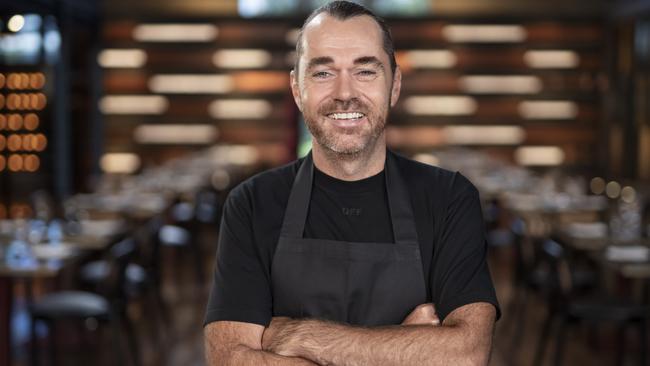
“Now they just twist and turn to whatever a Twitter comment says. That to me says a lot about what as a country we’ve got to do. We’ve got to pick ourselves up. Part of that is 250,000 skilled hospitality workers allowed back into this country. We need penalty rates to be looked at and abolished. I’m not asking for anyone to have their pay cut but I’m at the fore of this right now. I’ve got a daughter who works in a restaurant and loves it. And when she told me she was getting $86 an hour (as a waitress) I nearly fell over.
“My understanding is the industry would rather open on a Sunday and lose money just to keep market share. They stay open and they balance it out through the week.
“People got so naive and people got greedy. That’s what we’re seeing now.
“Penalty rates don’t suit the modern era, it’s just unacceptable how archaic it is. It’s like education, we haven’t changed our education system since the early 1900s and it’s time to change it. Look at what Finland and Scandinavia are doing with education.
“For me I couldn’t enter the hospitality industry right now knowing that you’ve got 150 pages of mess that you have to go through and sift through to find out that on page 90 you need to be paying $7 a week to a chef because he’s got his own knives. That is one of hundreds of new rules.”
Bennett is ever passionate and looks to the future with optimism. As he puts the finishing touches to his beachside abode, he is grateful for the grounding of restaurants.
In his favourite room, among the trees and overlooking the pool naturally filtered by plants, stones and mud, he often muses on that.
“The diversity and how it all comes together, where someone from Westmeadows can be on the same par as someone from Hawthorn or Toorak, only in Australia you can do that,’’ he said. “You’re both completely equal, no one is judging you in a restaurant.
“You’re there on your own accord because you love food, you love aspirational spaces and they’re not elite spaces. They’re not spaces of entitlement and I just hope Australia doesn’t become that.
“I still keep in touch with the team and that, in a way, led me to a full-time life up here which I always envisaged I wanted to do. I felt I may as well leave on my own terms. I miss the people, but I don’t miss the identity it created.”





